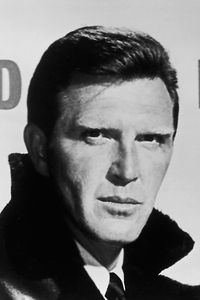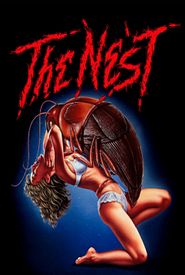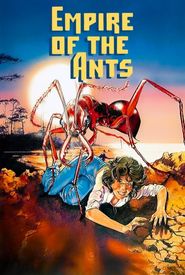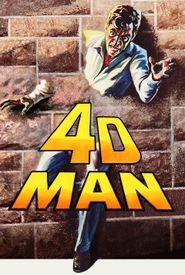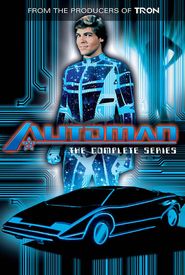Robert Lansing's biography:
Born to be a star, Robert Lansing's tall stature, tough looks, and commanding manner belied an often thoughtful and introspective screen personality. With a background in jazz, he started playing drums with various dance bands as a youngster. After high school, he won the Southern California Shakespearean Festival for dramatic acting at the age of 15. Lansing then served in the army in Japan, where he worked with the Armed Forces Radio Service.
After his discharge, he hitched a ride to New York, stopping over in Ft. Wayne, Indiana, to spend two years as a radio announcer and act in local theatre. He eventually made it to New York, where he became a struggling hopeful, frequenting the soup kitchen on 6th Avenue and traveling to auditions. He worked in a plastics factory and as a hat check attendant at a Latin Quarter nightclub to make ends meet.
Lansing's big break came when he was hired to play the part of Dunbar in 'Stalag 17' on Broadway in May 1951. He then appeared in several prestige plays, including 'Cyrano de Bergerac' and 'Richard III', but neither resulted in recognition or financial reward. By 1956, Lansing was still living with his wife and child in a vermin-infested tenement on Second Avenue.
Considering himself the last 'no-name leading man' in New York, Lansing decided to return to California and try his luck in films. He landed his first leading role on the big screen as a scientist who stumbles upon a method to penetrate solid matter in the low-budget sci-fi potboiler '4D Man' (1959).
Lansing's next milestone did not eventuate until four years later, when he was cast as Brigadier General Frank Savage in '12 O'Clock High' (1964). His performance was entirely convincing, of a military man attempting to balance duty with humanity and compassion. At the height of his popularity, Lansing's character was suddenly killed off at the beginning of season two.
Given the show's new time slot at 7:30 P.M., the sponsors clamored for a younger actor to woo the teen audience. They put forward another spurious argument in that audiences could not relate to a military man above middle-echelon rank. Understandably a little bitter from this experience, Lansing moved on to playing the dual lead in the espionage drama 'The Man Who Never Was' (1966).
Filmed on location in Europe, this was yet another series destined to be axed after a brief run. In-between his regular series work, Lansing had also essayed George Armstrong Custer in three episodes of 'Branded' (1965) (not without incident: on one occasion, he was thrown off his horse and landed in hospital with a broken hip) and starred as the sympathetic lead of the family feature 'Namu, the Killer Whale' (1966).
In 1968, Lansing guested as Gary Seven in 'Assignment: Earth', one of the most likeable and well-written episodes of 'Star Trek' (1966). His self-assured performance effectively stole the show. It was slated to be the pilot for a spin-off series. Sadly, by this time, the original series was already on the verge of cancellation and the project never got off the ground.
Luck was not to be Bob Lansing's middle name. Nonetheless, he kept busy during the next two decades acting on the stage, where he enjoyed rather more critical, if not financial, success (frequently performing at the Long Wharf and Cherry Lane Theatres). He received much praise for his one-man shows 'Damian' and 'The Disciple of Discontent'. His final Broadway appearance was as Benjamin Hubbard in a revival of 'The Little Foxes' in 1981.
He also continued regular screen work, notably as Edward Woodward's 'Control' in 'The Equalizer' (1985) and as the laconic lead of mutant bug monster movies like 'Empire of the Ants' (1977) and 'The Nest' (1987). A heavy smoker, Bob Lansing died from lung cancer one year into his last regular series, 'Kung Fu: The Legend Continues' (1993).
